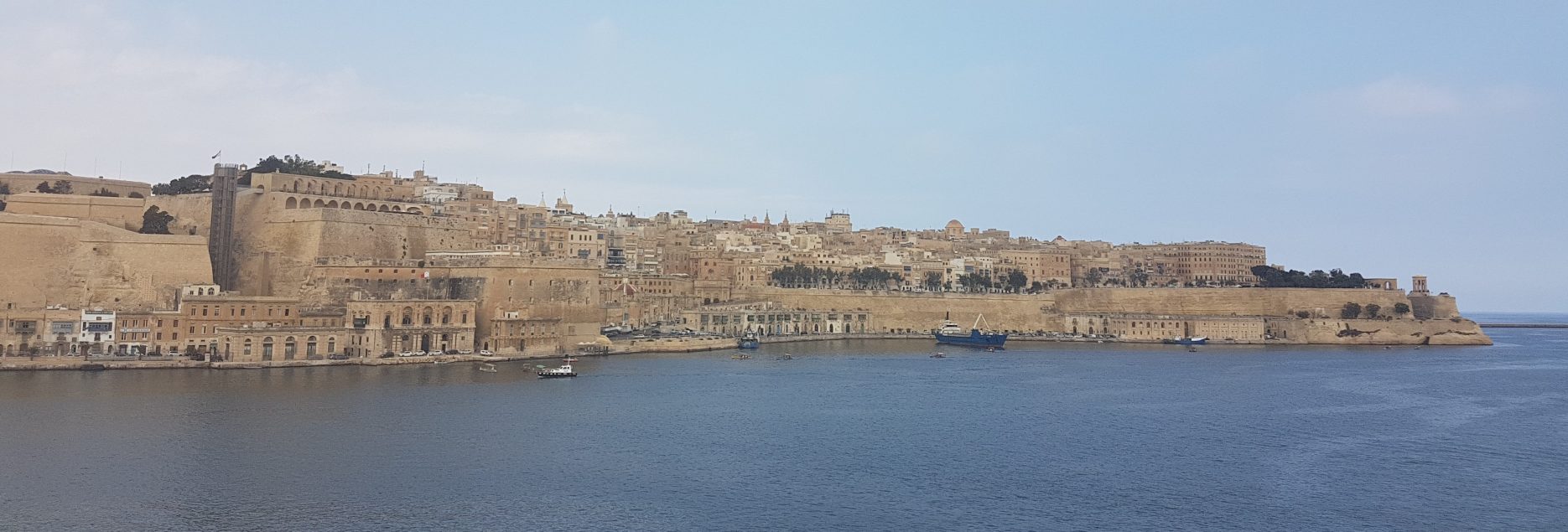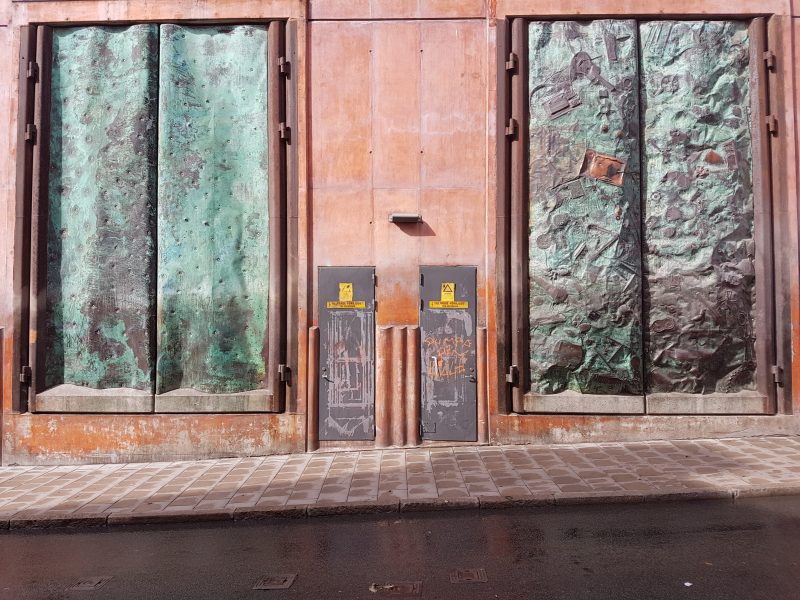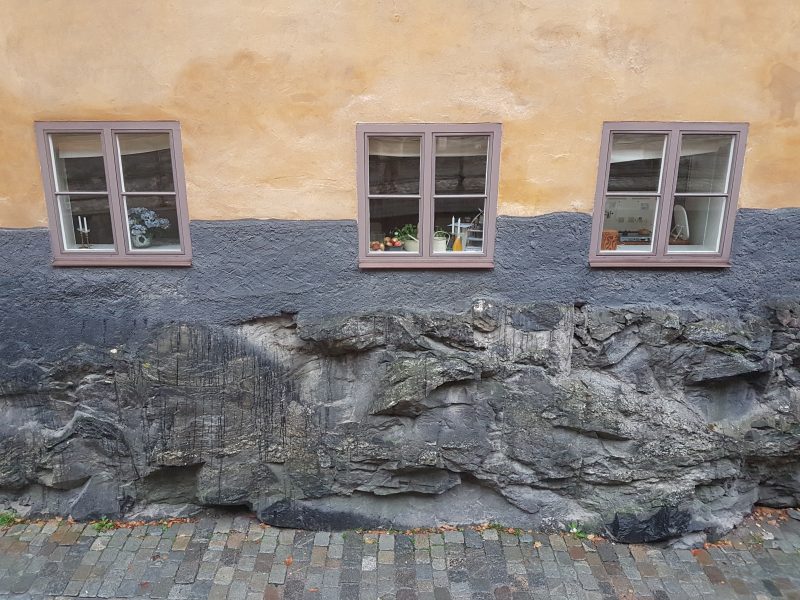A week after leaving Sweden, I received an update about my Swedish residency application: There was a problem and I would have to reapply. I quickly emailed the agency, asking if I could simply change the single troublesome entry by email. Sadly, I would have to submit the whole application again, in person. There was no way to cancel my bookings at this point or even fit in a quick jump back to Stockholm. Clearly, I should have stayed in Sweden and anxiously awaited the tax agency’s decision instead of travelling abroad looking for backup plans. Now that I knew what needed to be done, I arranged a one-way flight back to Stockholm for after my current travels, as well as some accommodation. I did make one small change to my trip. Since I hadn’t booked my train journey from London to Bristol and had only told one friend I was coming, it was easy to hold off on picking my stuff up in Bristol. I couldn’t very well carry everything back to Sweden when there was no certainty about my long-term residence. I’ll be heading to Bristol for a week shortly after being settled, wherever that is.
The role of news in decision making
After visiting Berlin, Rotterdam, The Hague, and Zurich, I finally set off for The Mediterranean. I had saved some news to my phone for times when I was taking a break from my miserable monster of a book, David Foster Wallace’s Infinite Jest:
Before I came across the Malta refugee article, I had not considered that Italy’s Mediterranean migration crisis was largely shared by Malta as well. These two countries, as well as probably a few others I don’t know about, are the literal frontlines of non-EU citizen migration, one of the most important challenges facing The West today. While Malta’s statistics in the article are quite frightening, even with the disproportionate number of tourists in Valletta, the ethnic diversity seems rather small. Malta can probably handle refugees, as well as the apparently small number of settled expats.
The Malta – EU Bloomberg article was much more relevant. One of the countries most prominent journalists was assassinated, Caruana Galizia (pictured below; “Gustizzja” means “justice”) very possibly by the Italian mafia. When I first arrived in town, the memorial was blocked off and removed (the first image), another worrying sign. The second image shows the memorial, presumably rebuilt a few days later (I took both pictures). Although certain other policies, like cryptocurrency exchanges (in the vein of Estonia’s cryptocurrency thought experiement) and passports purchases are not an issue for me, corruption is. Dismissing the European Parliment’s investigator honestly made me question whether Malta is a sufficiently mature country to consider for relocation.
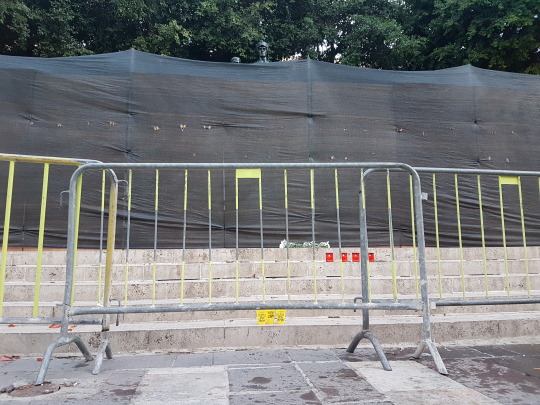
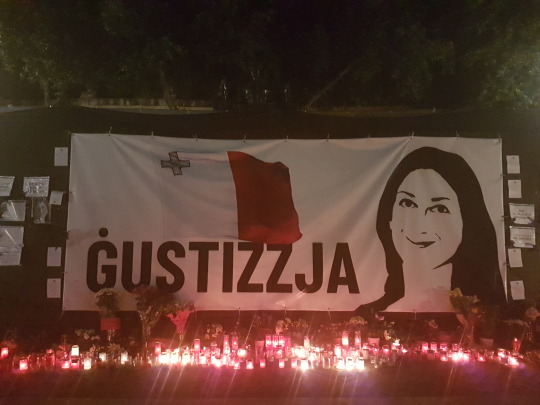
Malta’s unparalleled sublimity
When the plane arrived, it looked like I was back home in Los Angeles: All the plants were dry and dying, the unending suffering of desert life. But then everything changed when the bus dropped me off in front of the city walls. As you walk through this seemless construction, continuously built throughout the centuries, the majestic city of Valletta is revealed. The streets are beautifully compact and the apartments rise well into the Mediterranean sky. I had never quite come across such an exquisite blend of modern city density with rustic ornamentation. Although medieval towns like Tallinn might have some similarities, this capital city’s history was palpable.
In my opinion, Malta’s main city, Valletta is the best place I’ve ever been. It can be a bit difficult to separate Valletta from the surrounding areas, mostly because Valletta is so small and the greater region continues uninterrupted along the coast nearly a third of the way around the main island. Still, the charm of Mdina and its catacombs are hard to separate and distinguish from the 20 square minute centre of Valletta. Ultimately, it is Malta, the main island or larger country, that is so unique. Maybe other historic Mediterranean islands, like Cyprus and Sardinia, will have similar appeal, but I haven’t been to any of those places just yet.
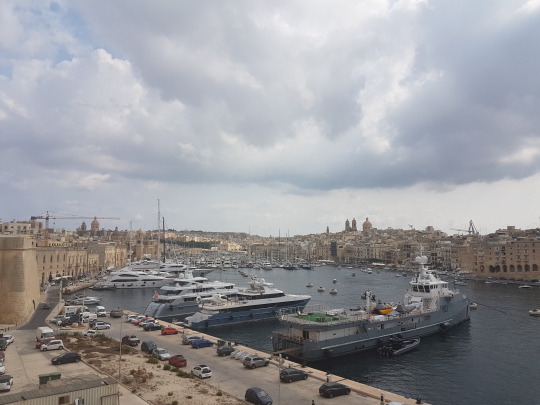
Modern Maltese life
Living in a beautiful place is great, but ultimately there are far more important considerations. The next day, I start on my planned route. The cycloidal paths I had used everywhere else in the world were ill-suited to the peninsular layout of Valletta and its surroundings. Instead, I simply walked from my AirBnb in central Valletta to Paceville, through the main expat areas of Sliema and St. Julian’s. Not including lunch, the walk took about 3 hours and nearly 13 kilometres and during all that time, I didn’t see anything that suggested I could make a life there. In fact, I was quite surprised that there weren’t more activities for the notable number of expats that already live there. Did they all go fishing all day?
The areas were mostly residential, except for the restaurant-lined streets that ran along the coast. There aren’t really any beaches in Malta. Any “beach” you find is usually imported sand. The natural equivalent of a beach are the flatter limestone areas that line the coast, where you’ll find the sunbathers. Since I stayed in Valletta, it seemed like quite a trip to attend the one or two social events that were available while I was there. Admittedly, I should have stayed in one of the expat areas to get a better sense of what life would be like there.
While Malta is the most densely populated country in the EU, areas outside of Valletta are not noticeably dense. Malta also has the second highest number of cars per capita in the EU. While density is something I look for in a relocation candidate, it is mostly because that statistic suggests the public transportation infrastructure is strong. Clearly, these figures are pointing in the opposite direction.
Malta came to my attention quite late in the Brexit travel search, through the InterNations Expat Survey. Oddly, the 2018 survey was released during my journey. While Malta was #7 in 2017, it dropped to #20 in 2018. Maybe all the construction in preparation for Valletta’s European Capital of Culture 2018 is to blame. Going back, the InterNations research was one of the few resources that even include Malta. NomadList also has Malta ranked quite high at #40 of best cities to live in Europe. Note that InterNations uses countries while NomadList is looking at cities.
Going to Malta was an incredible holiday and honestly the most beautiful place in The West I’ve seen. It is possible that other Mediterranean destinations like Cyprus would rival Malta’s rustic sublimity, but until I see those places Malta is my top recommendation for travel. As for its relevance as a Brexit destination, unless you’re working in online gaming or want to open a cryptocurrency exchange, I would not suggest Malta.
So every place I’ve been just makes me want to live in Stockholm even more. Let’s hope my application has some luck on the second try…
